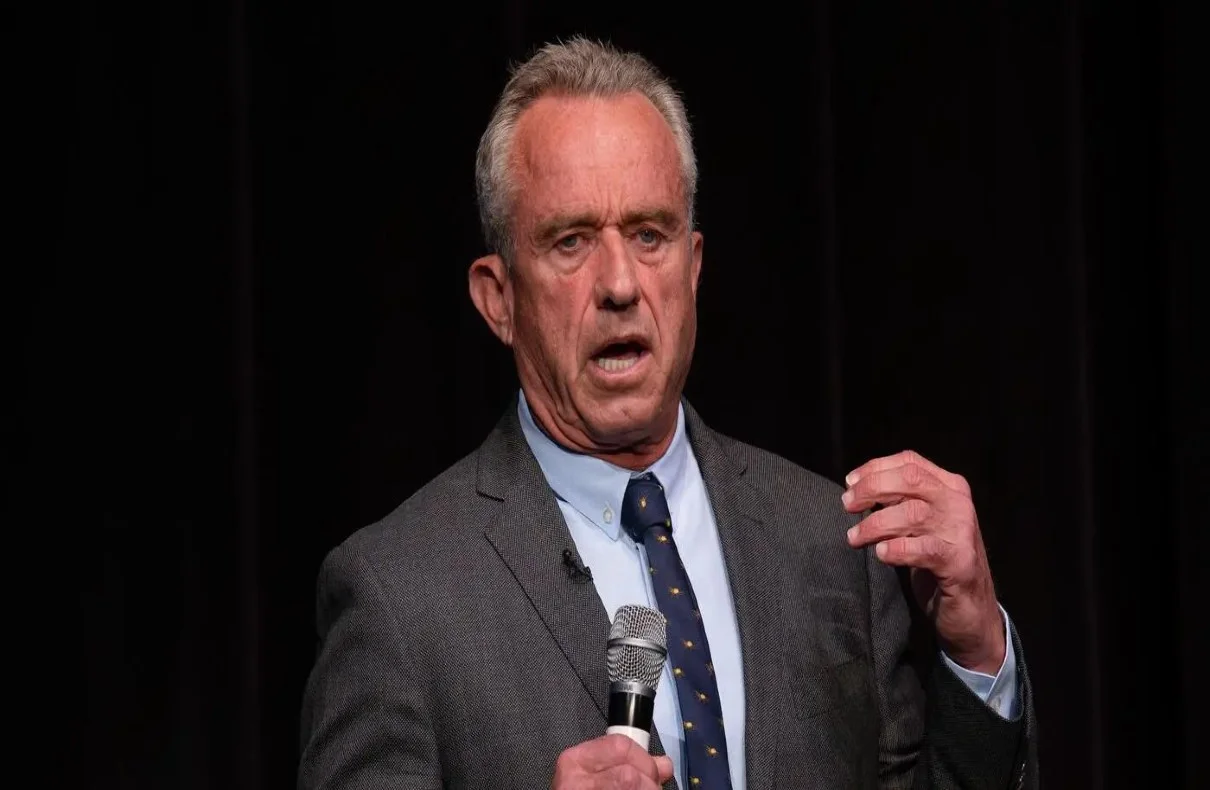
Advertising plays a crucial role in shaping public perception and garnering support for candidates. However, sometimes these advertisements can lead to controversy, as was the case with Robert F. Kennedy Jr.’s Super Bowl ad.
The Super Bowl ad in question aimed to highlight Robert F. Kennedy Jr.’s connection to his uncle, former President John F. Kennedy. It mirrored a campaign ad used by JFK during the 1960 presidential campaign, replacing JFK’s face with RFK Jr.’s. The ad sought to portray RFK Jr. as a balance of youth and experience, much like his uncle.
However, the ad received criticism from some members of the Kennedy family, including RFK Jr.’s cousin, Bobby Shriver. Shriver voiced his disapproval, stating that his mother and uncles would never have approved of RFK Jr.’s “deadly health care views.” Shriver specifically mentioned RFK Jr.’s anti-vaccine activism, which contradicted the pro-vaccine stance held by their family.
In response to the family’s criticism, RFK Jr. issued an apology. He expressed regret if the advertisement had caused any pain and clarified that he had no involvement or approval in its creation. RFK Jr. emphasized that Federal Election Commission (FEC) rules prohibited Super PACs from consulting with him or his campaign. Although he apologized to his family, the ad remained pinned to the top of his profile on X.
Amazon Whole Foods: Venturing into a New Retail Model
The controversial Super Bowl ad was created and aired by the American Values Super PAC. Super PACs have the freedom to raise and spend unlimited amounts of money to support political candidates, but they cannot coordinate with campaigns. The ad reportedly cost $7 million and was part of American Values 2024’s efforts to promote RFK Jr.’s candidacy.
It is worth noting that one of the major donors to the American Values Super PAC, Tim Mellon, has also contributed to PACs supporting former President Donald Trump. This connection raised eyebrows and fueled speculation about potential alliances and motives behind the ad. The involvement of big donors in political campaigns often raises questions about the influence of money in politics.
Robert F. Kennedy Jr. is running for president as an independent candidate. Despite his name recognition and family legacy, RFK Jr. faces an uphill battle in the 2024 presidential race. Initially, he sought to challenge President Biden in the Democratic primary but faced opposition from the Democratic National Committee (DNC), which stood behind the incumbent president.
Age has become a prominent concern among voters, particularly regarding the two major party candidates, President Biden and former President Trump. At 70 years old, RFK Jr. is older than his uncle was during his presidential campaign in 1960. However, he is still younger than Biden and Trump, who are both in their 70s and 80s, respectively. Some voters may view RFK Jr.’s age as a potential advantage compared to the older candidates.
The Super Bowl ad’s use of nostalgia, with its recreation of an ad from the 1960s, aimed to evoke a sense of familiarity and connection with the past. Political analysts suggest that this strategy was intended to capitalize on the sentimentality of viewers and draw attention to RFK Jr.’s candidacy. Nostalgic elements in political advertising can be powerful tools to resonate with the public.
Waffle House Shooting in Indianapolis: Tragedy Strikes at a Local Eatery
The presence of RFK Jr. in the race raises questions about the potential impact on the two major-party candidates, President Biden and potential Republican candidates. Polls indicate that RFK Jr.’s support hovers around 10%, suggesting that he may draw votes away from both major-party candidates. However, opinions vary on the extent to which RFK Jr.’s candidacy could affect the overall outcome of the election.
On Friday, the Democratic Party leadership filed a complaint with the Federal Election Commission (FEC), accusing RFK Jr.’s campaign of coordinating too closely with the American Values Super PAC. The complaint alleges that efforts were made to ensure RFK Jr.’s presence on the ballot in all 50 states. The Democratic Party views RFK Jr. as a potential spoiler candidate who could undermine their chances in the election.
The controversy surrounding RFK Jr.’s Super Bowl ad and subsequent apology to his family highlights the complexities of political advertising and the influence of Super PACs in elections. While RFK Jr. seeks to distinguish himself as an independent candidate, his actions and family connections can have far-reaching implications for the 2024 presidential race. As the campaign unfolds, the role of money in politics and the impact of nostalgia-driven advertising will continue to shape the race.
